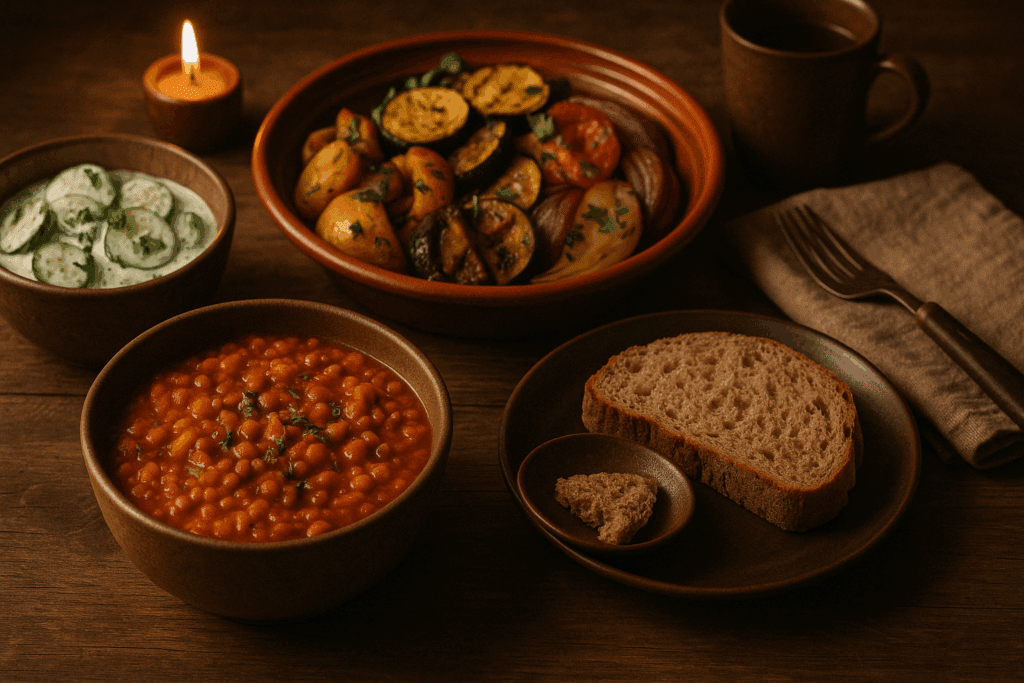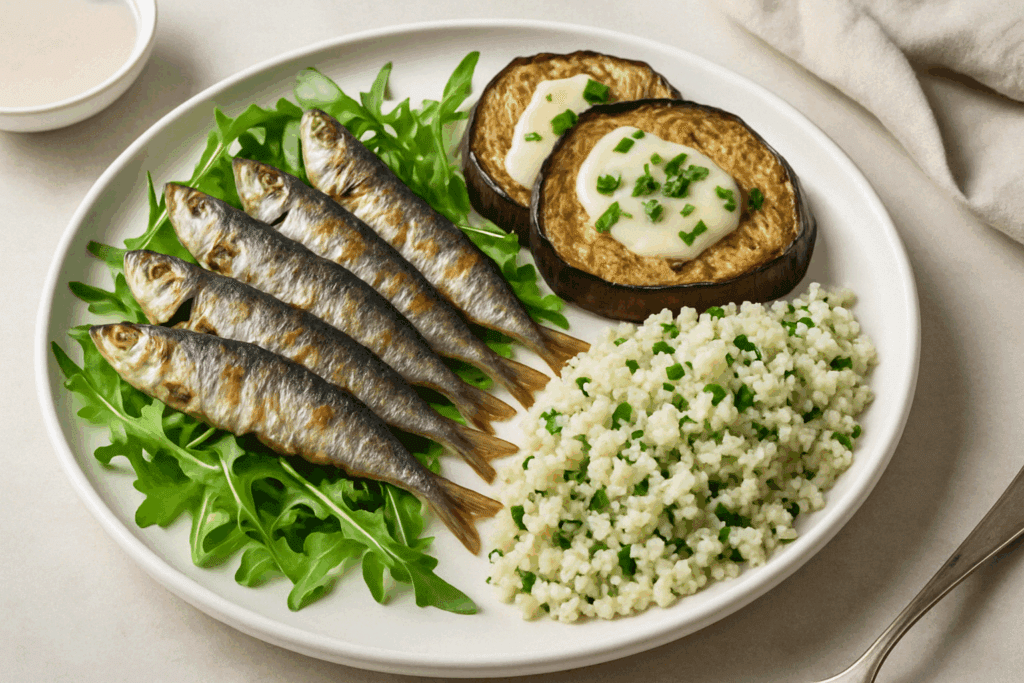In a health-conscious world filled with competing dietary advice, it is easy to feel overwhelmed by conflicting information about which methods work best for losing weight. Yet, with growing scientific evidence and a deeper understanding of metabolic health, we can now approach the question of the most efficient weight loss strategies with greater clarity and confidence. This article aims to dissect which is better for weight loss through a comprehensive, evidence-based analysis that also addresses how to stay on track sustainably, integrating key lifestyle factors and nutritional principles from the whole-food, plant-based framework.
You may also like: Plant Based Diet vs Standard American Diet: What the Latest Studies Reveal About Long-Term Health Outcomes
Understanding the Foundations of the Most Efficient Weight Loss
To begin understanding the most efficient weight loss methods, we must first define efficiency in a health context. Efficient weight loss is not simply about shedding pounds quickly; it is about losing fat mass in a manner that is metabolically supportive, hormonally balanced, psychologically sustainable, and protective of lean body tissue. Rapid weight loss strategies that prioritize short-term results often compromise long-term health and increase the likelihood of rebound weight gain. Conversely, sustainable strategies prioritize nutrient density, behavioral consistency, and metabolic flexibility.
From a physiological standpoint, efficient weight loss results when calorie expenditure exceeds calorie intake in a way that does not overly suppress the resting metabolic rate or damage hormonal balance. The most efficient strategies typically include whole foods, moderate caloric deficits, and attention to fiber, protein, and healthy fats that enhance satiety. Additionally, lifestyle elements such as quality sleep, regular movement, and stress management significantly influence outcomes.

The Role of Diet Quality: Nutrient Density Over Restriction
One of the most overlooked yet powerful principles for losing weight efficiently is prioritizing diet quality over simple calorie counting. A nutrient-dense, whole-food, plant-based diet naturally reduces caloric intake without intentional restriction due to its high fiber and water content. Foods such as legumes, leafy greens, vegetables, fruits, and whole grains provide sustained energy and fullness. Unlike ultra-processed foods that are engineered for overconsumption, these whole foods signal satiety and support hormonal balance.
Studies consistently demonstrate that plant-based diets rich in whole foods support healthy weight loss and metabolic regulation. This approach also allows individuals to consume larger volumes of food while staying within a calorie deficit. Among the most powerful things to lose weight naturally is the shift from high-calorie, low-nutrient foods to fiber-rich, micronutrient-dense meals. These foods reduce insulin resistance, support the gut microbiome, and naturally downregulate hunger hormones.
Is Keto a Low Carb Diet? Unpacking the Debate
Many people wondering which is better for weight loss encounter the ongoing debate between low-carbohydrate diets and ketogenic diets. While the terms are often used interchangeably, there are key distinctions worth understanding. A low carb diet generally limits carbohydrate intake moderately, while a ketogenic diet severely restricts it to induce ketosis, a metabolic state where fat is used as the primary energy source. So, is keto a low carb diet? Technically yes, but the reverse is not always true. Not all low carb diets reach or maintain ketosis.
This distinction is important when assessing the ketogenic diet vs low carb approaches in the context of the most efficient weight loss. The keto diet vs low carb diet comparison reveals that both can result in initial fat loss, but their long-term sustainability and metabolic effects differ. The ketogenic diet, by eliminating nearly all carbohydrate sources, often provides rapid short-term weight loss due to water loss and suppressed appetite. However, is a keto diet sustainable for most people over the long term? Evidence suggests adherence rates drop significantly after several months due to the restrictive nature of the diet.

Evaluating the Science Behind Keto: Is Keto a Good Diet?
To determine whether is keto a good diet for weight loss, we must look beyond anecdotal reports and assess long-term clinical data. While ketosis can be effective for individuals with epilepsy or severe insulin resistance, broader studies suggest that weight loss outcomes are comparable to other dietary strategies when calories and protein are matched. More importantly, very low-carb diets can lead to reduced fiber intake, imbalanced gut flora, and micronutrient deficiencies over time.
For many, keto is not only difficult to maintain but can also interfere with social and cultural aspects of eating. Additionally, concerns about saturated fat intake from common keto staples such as bacon, butter, and cheese remain unresolved. While some plant-based versions of the ketogenic diet do exist, they are difficult to implement and require rigorous planning. Therefore, for those seeking the most efficient weight loss path that is realistic and sustainable, a balanced whole-food, plant-based approach may be more appropriate.
The Appeal of Plant-Based Approaches: Evidence and Practicality
Plant-based nutrition continues to gain scientific support as one of the most effective and sustainable things to aid weight loss. Unlike restrictive diets, a whole-food, plant-based approach emphasizes abundance rather than deprivation. A plate filled with vegetables, legumes, fruits, and intact grains offers a diversity of nutrients, fiber, and phytochemicals that promote metabolic health and satiety. This dietary pattern also encourages mindful eating and fosters a more intuitive relationship with food.
Recent studies have shown that individuals who follow plant-based diets tend to have lower body mass indexes (BMIs), better insulin sensitivity, and reduced risks of chronic disease. For losing weight effectively, plant-based meals that are minimally processed and rich in fiber are associated with slower glucose absorption and reduced post-meal insulin spikes. This hormonal balance is critical for supporting fat loss over time.
Exploring Things to Aid Weight Loss Beyond Diet Alone
While diet is foundational, it is only one pillar among many in the most efficient weight loss strategies. Other important things to aid weight loss include regular movement, strength training, hydration, stress management, and sleep quality. Exercise not only burns calories but also preserves lean muscle mass, which is crucial for maintaining metabolic rate. Even light activity such as walking after meals can significantly improve glucose regulation and fat oxidation.
Chronic stress, on the other hand, raises cortisol levels, which can increase appetite and lead to abdominal fat accumulation. Practices such as mindfulness, meditation, and deep breathing help regulate the nervous system and support more consistent decision-making around food. Similarly, adequate sleep influences hunger-regulating hormones like leptin and ghrelin, making it easier to control cravings and stay on track.
Behavioral Science and the Question: How Can I Stay on a Diet?
Perhaps one of the most common questions among those pursuing fat loss is how can I stay on a diet without falling off track? This question highlights the need for behavior-based strategies that reinforce adherence rather than willpower alone. Successful long-term weight loss is not a matter of discipline, but of environment, habits, and psychological support. Building an environment that makes healthy choices the default—such as prepping meals in advance, reducing trigger foods, and surrounding oneself with supportive people—can dramatically improve consistency.
Cognitive-behavioral techniques like setting specific goals, tracking progress, and celebrating small wins enhance intrinsic motivation. Additionally, understanding personal triggers—whether emotional, social, or situational—allows individuals to build tailored strategies that work with, rather than against, their tendencies. Thus, staying on a diet becomes less about rigid rules and more about aligning daily actions with long-term identity and values.

Comparing Popular Diets: Which Is Better for Weight Loss?
When comparing popular diets, it is tempting to ask which is better for weight loss: keto, low carb, Mediterranean, vegan, or intermittent fasting? The answer is nuanced. Studies suggest that when calorie intake is controlled, many diets can be effective in the short term. However, the most efficient weight loss strategy is not necessarily the one that produces the fastest results, but the one that can be sustained without physical or emotional burnout.
The ketogenic diet vs low carb diet debate is a perfect example. While keto may offer more dramatic initial results, its long-term compliance is low. In contrast, more flexible approaches such as low carb or Mediterranean-style diets allow for greater variety and adherence. Still, plant-based diets outperform in many long-term studies when it comes to weight maintenance, cardiovascular health, and insulin sensitivity.
Moreover, diets that are rich in plants and whole foods—whether moderate in carbohydrates or not—tend to outperform high-protein, low-carb diets when viewed through a broader lens of longevity, inflammation, and gut health. Therefore, the question of which is better for weight loss must include not only fat loss but also sustainability, metabolic health, and quality of life.
Debunking the Myth: Is Keto No Carbs?
A common misunderstanding in the low-carb community is the belief that keto equates to zero carbohydrates. This prompts the recurring question: is keto no carbs? The reality is that while ketogenic diets are very low in carbs, they are not completely carb-free. Most keto guidelines suggest limiting net carbohydrate intake to 20–50 grams per day, which can still include non-starchy vegetables, small amounts of berries, and nuts.
However, even this small amount of carbs can disqualify someone from reaching ketosis if their individual metabolic threshold is sensitive. Therefore, people often confuse low carb with keto, when in fact, a low carb diet may allow more carbohydrates than keto without inducing ketosis. Understanding this distinction helps individuals choose a plan that better matches their metabolic needs and personal preferences.
Practical Applications and Long-Term Planning
Efficiency in weight loss ultimately hinges on personalization. No single strategy works for everyone, and the most successful approaches are those that account for individual goals, lifestyle, medical history, and food preferences. This is why flexible frameworks—like the whole-food, plant-based model—are gaining traction as a long-term solution.
Planning meals around whole, minimally processed foods, batch cooking, staying hydrated, and managing portion sizes are tangible steps that reinforce consistency. Pairing these strategies with regular movement and emotional self-regulation enhances success. It also helps to focus on non-scale victories such as improved energy, better sleep, or stronger digestion. These markers offer motivation even when weight loss slows.
The Importance of Mindset in Sustainable Weight Loss
Mindset is often the missing ingredient in long-term weight loss success. Focusing exclusively on external goals, like a number on the scale, can be demoralizing when progress plateaus. Instead, viewing weight loss as a byproduct of healthy living creates a more empowering and sustainable experience. This shift from outcome-based thinking to identity-based living changes the question from “How can I stay on a diet?” to “How can I live as a healthy person every day?”
This mindset supports the creation of habits that are consistent and self-reinforcing. For example, someone who identifies as a healthy eater is more likely to make nourishing food choices even in challenging environments. This identity-driven approach enhances autonomy and reduces decision fatigue, two important elements in long-term success.
Reflections on Sustainability: Is a Keto Diet Sustainable?
In evaluating any dietary strategy, sustainability is a key factor. So, is a keto diet sustainable for most people in the real world? The answer, backed by both research and clinical observation, is that keto is often difficult to maintain over time. Restrictive food lists, social limitations, and potential nutrient imbalances make it challenging for the average person to follow long term. Moreover, the exclusion of many whole plant foods raises concerns about fiber intake and gut health.
A sustainable weight loss strategy should be enjoyable, nutritionally adequate, flexible, and adaptable. Whole-food, plant-based diets fit these criteria well. They allow for a broad range of flavors, textures, and cultural food traditions while supporting metabolic health and long-term weight maintenance. These qualities make them a more realistic choice for people seeking not just weight loss, but lasting transformation.

Frequently Asked Questions (FAQ): Advanced Insights into Mediterranean Diet Strategies
1. How can I make Mediterranean diet lunches more exciting while staying healthy?
Mediterranean diet lunches offer ample room for creativity beyond the typical salad or hummus wrap. One strategy is to rotate seasonal produce to keep flavor profiles interesting and nutrient intake diverse. Incorporating roasted vegetables like eggplant or sweet peppers into whole grain bowls with tahini or lemon-herb dressings can boost satiety and taste. You might also explore less common Mediterranean diet meal ideas such as lentil-mint tabbouleh or farro with artichokes and olives. These additions diversify your intake and support the goal of a sustainable, healthy Mediterranean lifestyle.
2. What are some Mediterranean diet dinner strategies that help with nighttime cravings?
Mediterranean diet dinners can be strategically structured to prevent evening snacking, which is often where diet derailment begins. Emphasize fiber-rich legumes like chickpeas and lentils paired with heart-healthy fats such as extra-virgin olive oil or avocado. Dishes like tomato-lentil stew or grilled vegetable tagine with quinoa are excellent for promoting satiety. Adding a fermented element like yogurt sauce or kefir-marinated cucumbers can also aid digestion and curb sugar cravings. These healthy Mediterranean meal combinations promote fullness and metabolic balance overnight.
3. How do I personalize a 7 day Mediterranean meal plan for high energy needs?
To adapt a 7 day Mediterranean meal plan for physically active lifestyles, consider increasing your intake of complex carbs and plant-based protein. Options like whole grain couscous, lentils, and Greek yogurt provide sustained energy and recovery support. Including smoothies with leafy greens, berries, and tahini as snacks between Mediterranean diet meals ensures blood sugar stability. You can rotate in higher-calorie, nutrient-dense dishes like moussaka made with eggplant and legumes for dinner. Using a Mediterranean diet meal plan shopping list tailored to activity levels helps avoid energy dips while staying aligned with whole-food eating principles.
4. What are overlooked Mediterranean diet menu ideas that improve gut health?
While yogurt is well-known, other Mediterranean diet menu ideas can enhance microbiome diversity. Dishes featuring brined vegetables like pickled artichokes or olives, or adding fermented grains such as sourdough, provide unique prebiotic and probiotic compounds. Stews made with fennel, leek, and garlic also contribute prebiotic fiber, which nourishes beneficial bacteria. Combining these with fibrous legumes in your Mediterranean diet dinners can reduce bloating and improve digestion over time. Even small additions, such as including preserved lemons in sauces or dressings, can have gut-supportive benefits.
5. Can a low carb Mediterranean diet meal plan support blood sugar control long-term?
Yes, a low carb Mediterranean diet meal plan can support blood sugar regulation while still honoring the traditional Mediterranean ethos. The focus should be on non-starchy vegetables, moderate protein from fish or legumes, and healthy fats like nuts and olive oil. Swapping out grains for zucchini noodles or cauliflower rice in Mediterranean diet dinners reduces glycemic load without sacrificing flavor. Examples of Mediterranean food in this category include grilled sardines over arugula or baked eggplant with tahini. This approach supports insulin sensitivity and is easier to maintain than more restrictive low-carb plans.
6. What are practical ways to keep a 21 day Mediterranean diet menu affordable?
Many assume that a 21 day Mediterranean diet menu is cost-prohibitive, but with smart planning it can be budget-friendly. Utilize pantry staples like canned beans, oats, and brown rice as foundational ingredients. Plan Mediterranean diet lunches in bulk—such as chickpea salads or lentil soups—that can be eaten across several days. Frozen produce, including spinach and artichokes, is often more affordable and equally nutritious. Organizing a Mediterranean diet meal plan shopping list around weekly sales and seasonal items also reduces costs without compromising health.
7. How can I create Mediterranean diet meals with less salt for heart health?
To make low sodium Mediterranean diet recipes, flavor layering becomes essential. Instead of salt, focus on using aromatics such as garlic, onions, lemon zest, and a wide range of herbs like rosemary or basil. Cooking techniques like roasting or grilling bring out the natural sweetness and umami in vegetables, reducing the need for added salt. Swapping out aged cheeses for unsalted varieties and making homemade dips like hummus lets you control sodium content in Mediterranean diet meals. These strategies support a heart-healthy Mediterranean approach without sacrificing flavor.
8. What are the best Mediterranean diet ideas for plant-based eaters who avoid dairy and fish?
Plant-based versions of Mediterranean diet meals can still be deeply nourishing and flavorful. Instead of yogurt or cheese, try spreads like baba ganoush or muhammara for creamy texture and robust taste. For protein, rely on legumes, tempeh, and whole grains like farro or freekeh in your Mediterranean diet dinners. Examples of Mediterranean food that are fully plant-based include lentil-stuffed peppers, roasted chickpeas over arugula, or herbed tofu souvlaki. The healthiest Mediterranean dishes often emerge when plants are the foundation and variety is prioritized.
9. How can I maintain motivation during a 7 day Mediterranean diet for weight loss?
Sustaining motivation during a 7 day Mediterranean diet for weight loss involves more than just willpower—it’s about creating meals you actually enjoy. Keeping Mediterranean diet ideas diverse and flavorful reduces the sense of restriction that leads to burnout. Planning themed Mediterranean diet dinners—like Greek night with lemon-herb lentils or Moroccan night with spiced carrots and chickpeas—keeps the experience enjoyable. Tracking how you feel in terms of energy and digestion also provides internal motivation beyond the scale. When meals are satisfying and results are felt in more than one way, adherence becomes easier.
10. How do I simplify meal prep for a 7 day meal plan Mediterranean diet while working full-time?
Simplifying prep for a 7 day meal plan Mediterranean diet begins with batch cooking and repetition. Make large portions of core items like lentils, quinoa, and roasted vegetables that can be repurposed in multiple Mediterranean diet lunches and dinners. Pair those with grab-and-go snacks like fruit, nuts, or mini containers of olives. Having a well-organized Mediterranean diet meal plan shopping list can also minimize decision fatigue during the week. With just a few foundational ingredients and go-to recipes for Mediterranean diet meals, you can build a full week’s worth of nourishing dishes with minimal day-to-day effort.

Conclusion: Choosing the Most Efficient Weight Loss Path with Confidence
Ultimately, the most efficient weight loss plan is one that aligns with your body, your lifestyle, and your long-term health goals. While many diets can initiate weight loss, only a select few support sustained success without compromising health. Whole-food, plant-based nutrition provides a powerful framework that satisfies both the science and the soul. It addresses the critical elements of satiety, hormonal balance, microbiome health, and behavioral consistency.
Whether you’re deciding between a low carb diet, a ketogenic protocol, or a more inclusive plant-based model, the key is to evaluate not just which is better for weight loss in the short term, but which approach enables you to live well every day. By incorporating things to aid weight loss such as mindful movement, restorative sleep, and emotional resilience, you create an ecosystem of wellness that supports your goals naturally. And by answering the question how can I stay on a diet with a strategy grounded in self-respect and curiosity, you shift from dieting to living—healthfully and intentionally.
Was this article helpful? Don’t let it stop with you. Share it right now with someone who needs to see it—whether it’s a friend, a colleague, or your whole network. And if staying ahead on this topic matters to you, subscribe to this publication for the most up-to-date information. You’ll get the latest insights delivered straight to you—no searching, no missing out.
Further Reading:
How to naturally lose weight fast
Science-Backed Tips to Lose Weight Fast and Sustainably
Weight-Loss and Maintenance Strategies
Disclaimer
The information contained in this article is provided for general informational purposes only and is not intended to serve as medical, legal, or professional advice. While NewsHealthWatch strives to present accurate, up-to-date, and reliable content, no warranty or guarantee, expressed or implied, is made regarding the completeness, accuracy, or adequacy of the information provided. Readers are strongly advised to seek the guidance of a qualified healthcare provider or other relevant professionals before acting on any information contained in this article. NewsHealthWatch, its authors, editors, and contributors expressly disclaim any liability for any damages, losses, or consequences arising directly or indirectly from the use, interpretation, or reliance on any information presented herein. The views and opinions expressed in this article are those of the author(s) and do not necessarily reflect the official policies or positions of NewsHealthWatch.

